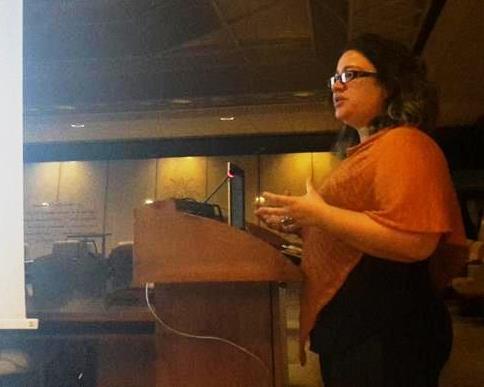 Written by Sarah Cardey, School of Agriculture, Policy and Development – University of Reading
Written by Sarah Cardey, School of Agriculture, Policy and Development – University of ReadingAs a result of the FCCM, a Global Research Initiative on Rural Communication (GRI-RC) has been created with members from various universities including the University of Reading. We are developing a study to have a strong first look at evidence and research in rural communication services, which we believe will provide the basis for more in-depth inquiry.
As a member of the FCCM and the GRI-RC group, I was able to spend ten days with the FAO Office for Partnership, Advocacy, and Capacity Development as a visiting scientist.
The goal of my time at FAO was to get a snapshot and perspective on what actions had taken place since the FCCM, and in particular to follow up on activities under the priority area of work: Research.
As a team committed to understanding and advocating for communication in rural development, one area we were keen to explore was what contribution communication could make to improving activities in family farming, innovation, and resilient livelihoods. Those of us working in the field of communication for development understand the importance of communication, and rural communication services, for achieving positive outcomes in the lives of farmers and people living in rural communities. However, this isn’t necessarily clear to those outside the field.
I reflected on a project I have been working on with colleagues at the University of Reading (UK), Makerere University (Uganda), Afhad University for Women (Sudan), University of Nairobi (Kenya), and Kiel University (Germany) looking at the role of farmer innovation in economic growth in East Africa. My particular lens highlights the gender component of communication and innovation in economic growth, food security and poverty reduction.
To showcase this work, on May 14th I gave a seminar on Applying Communication for Development with a Gender Perspective to Family Farming. The discussion amongst participants at the seminar was lively and energizing, and left me with a great deal of fresh material to ponder.
I also look forward to continuing to explore the questions that came out of our discussions and interactions during my time at FAO: it is clear how much energy there is for supporting communication for development, and re-asserting its importance in rural development, and it is clear that there are a range of dynamic actors already contributing to this area in practice. As we look forward, it will be important to understand how this can be rooted in regional initiatives and policies, and global perspectives, so that we can continue to have an important impact in food security, poverty reduction, and gender equality goals in the future.
